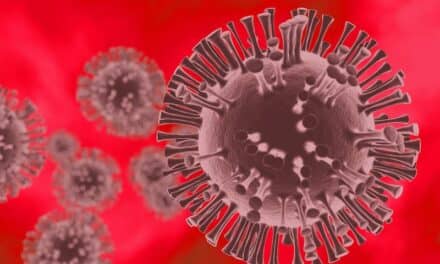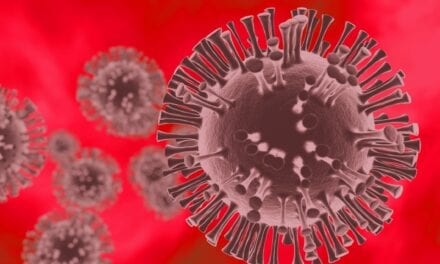On the heels of a targeted initiative by the Digital Pathology Association (DPA), Carmel, Ind, to pursue a waiver from remote pathology restrictions during the covid-19 public health pandemic, the Centers for Medicare and Medicaid Services (CMS) recently approved a temporary waiver that will permit pathologists to work remotely.
The waiver will provide temporary relief from federal regulations requiring pathologists to render primary diagnoses onsite at healthcare facilities. The College of American Pathologists and the American Society for Clinical Pathology were prominent among the organizations that sought this regulatory relief.
DPA petitioned CMS to temporarily authorize remote primary diagnoses.1 Association executives said that immediate action by CMS would limit pathologists’ exposure to the coronavirus, facilitate timely patient care, and permit those doctors who are quarantined to continue providing critical medical services.
DPA President Michael Rivers commended the CMS action. “This is a victory for the laboratory and pathology community, as well as for patients and their families who rely on timely diagnostic results.”
While CMS had granted emergency waivers to promote telehealth during the covid-19 crisis, pathologists were still required to conduct primary diagnoses under existing regulations. The new CMS waiver affects the site-specific ‘eligibility for a multisite laboratory’ requirements.2–4
Pathologists already render second opinions for consultation remotely, as they have the necessary equipment and technology to fully analyze stained tissue slides or whole-slide images from remote offices or homes using conventional microscopy or digital technology. With the waiver, say Rivers, considerable safeguards would remain in place, including:
- Specimen processing and diagnostic sample preparation, image and data generation, as well as billing and administrative activity will remain at the primary location of, and under the certification number and authority of, the CLIA-certified lab.
- Pathologists performing interpretation and diagnosis remotely will practice within the scope of their professional license, will be credentialed by the main facility housing the CLIA-certified lab or by the CLIA-certified lab under which they are operating, and will perform remote interpretation and diagnosis consistent with a written agreement approved by the medical director of the CLIA-certified lab.
- The CLIA-certified lab for which the licensed, credentialed, and privileged pathologists perform services remotely will retain clinical and administrative oversight and responsibility for activities performed at those remove sites.
“Pathologists serve at the frontline of the diagnostic process and are critical to ensuring that patients receive the right treatment at the right time,” says Rivers. “In order to ensure continuity of service to patients and to protect the health of the significant number of pathologists who are in the higher risk demographics for covid-19, the Digital Pathology Association fought to ensure that laboratories have the flexibility to render primary diagnoses remotely, and that restrictions regarding the locations where pathologists can render diagnoses be temporarily lifted.”
Remote diagnosis is still subject to rules for the practice of good medicine and laboratory validation.
“Any technology concerns can be mitigated with appropriate remote IT support,” Rivers says. “We believe this is critical in this uncertain time of covid-19, and important for the future as we work to drive adoption of digital pathology.”
Rivers notes that digital pathology is now being recognized as a proven and essential technology. It provides additional tools to render faster, higher quality, and more accurate diagnoses. DPA’s focus is on exploring digital pathology applications, education, and best practices, while collaborating with FDA on equipment approvals and addressing technology regulations.
DPA is a nonprofit association comprising pathologists, scientists, technologists, and industry representatives dedicated to advancing the field of digital pathology. For more than 10 years, the association has worked through its membership to demonstrate the efficacy of digital pathology solutions.
For more information, visit the Digital Pathology Association.
References
- Authorizing Pathologists to Employ Remote Pathology Practices in Response to the Covid-19 Pandemic [letter from DPA President Michael Rivers, online]. Carmel, Ind: Digital Pathology Association, 2020. Available at: https://digitalpathologyassociation.org/news/wp-content/uploads/2020/03/dpa-remote-pathology-letter.pdf. Accessed March 30, 2020.
- Application for a Certificate of Waiver [online]. 42 CFR 493.35(a). Available at: www.govinfo.gov/content/pkg/CFR-2019-title42-vol5/xml/CFR-2019-title42-vol5-part493.xml#seqnum493.35. Accessed March 30, 2020.
- Application for Registration Certificate, Certificate for Provider-Performed Microscopy (PPM) Procedures, and Certificate of Compliance [online]. 42 CFR 493.43(a). Available at: www.govinfo.gov/content/pkg/cfr-2019-title42-vol5/xml/cfr-2019-title42-vol5-part493.xml#seqnum493.43. Accessed March 30, 2020.
- Application for Registration Certificate and Certificate of Accreditation [online]. 42 CFR 493.55(a). Available at: www.govinfo.gov/content/pkg/CFR-2019-title42-vol5/xml/CFR-2019-title42-vol5-part493.xml#seqnum493.55. Accessed March 30, 2020.





